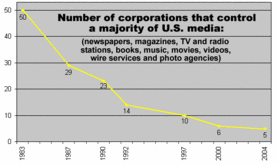 Verizon has a policy blog.
It’s been around for most of a year now:
Verizon has a policy blog.
It’s been around for most of a year now:
I’ll leave clever humor comparing this blog’s name with the terminology for amphibious offspring to others, yet in one sense the comparison is appropriate. “PoliBlog” is very much a site in its infancy, and none of us here at Verizon is sure how it will evolve. But evolve it will.I have to give them points for seeing it as an emergent communication method including their point of view, rather than just dictating talking points.So far, they seem to be sticking to that. And they’re getting some interesting comments, pro and con. But let’s look outside their blog box a bit. Continue readingThe intent of PoliBlog is to present perspectives on issues of importance that intersect public policy, politics, markets, and business in the broadband world. That’s a big pool to swim in, and it reflects the constantly changing world we live in.
—, Welcome Aboard, by Tom Tauke, PolicyBlog, October 02, 2006








